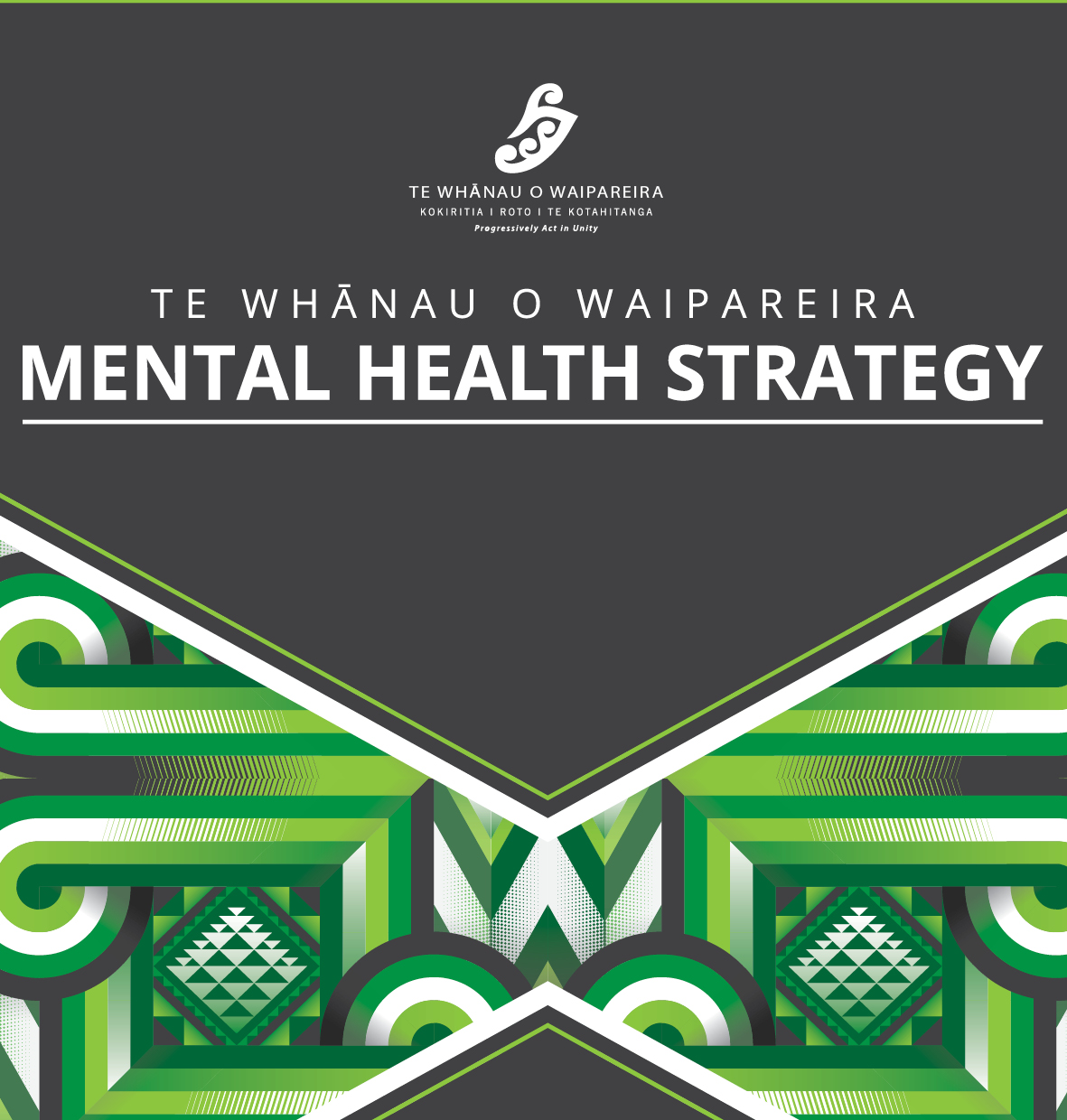Te Whānau o Waipareira – Mental Health Strategy
The Waipareira Mental Health Strategy was developed as a result of years of kōrero and rangahau, starting with conversations surrounding existing services in West Auckland, and whether they were providing for the mental health and wellbeing needs of Māori whānau. A literature review focusing on kaupapa Māori models of therapy and mental health services was carried out in 2016. This delivered an insight for Te Whānau o Waipareira on models, frameworks and practices that focus on kaupapa Māori – or Māori centered – mental health delivery.
These findings provided the basis for shaping the next research project – Kimihia Te Hauora Hinengaro: Pathways to Mental Health, which was a qualitative exploration of the practices, models and relevance of kaupapa Māori service delivery of a range of services in West Auckland. Funded by the Health Research Council of New Zealand, this 18 month study included interviews with tāngata whaiora, whānau and service providers, resulting in new knowledge around the understanding, application and relevance of kaupapa Māori mental health approaches.
The findings from Kimihia Te Hauora Hinengaro provided a springboard for engaging our own frontline kaimahi, both in feeding back the research they contributed to, but moreover to work together to map out the way forward from theory to practice, or from research to implementation.
The next stage of the framework development centered around the engagement of Waipareira frontline kaimahi, with these research findings, in the form of a workshop led by Emeritus Professor Sir Mason Durie. During this session, kaimahi worked through establishing values, aims and catalysts that they see as foundational for delivering mental health “the Waipareira Way”. The resulting framework provides our roadmap for operationalising our own, evidence informed kaupapa Māori approach, where kaimahi are the key to work out how we can apply our framework “on the ground” to our community.
This framework outlines the strategic approach going forward for supporting and improving Māori mental health and wellbeing, and contains two key parts – the research and the framework.
This publication represents an example of translational research in action. For Wai Research and Te Whānau o Waipareira, translational research means that all research has to be steeped in the interest and participation of the community that we serve, giving a voice to the community and to those that are at the forefront of working within the community. The process of getting to the stage where we have our own, foundational mental health and wellbeing framework is how research can contribute to best outcomes in our community, with our community, driven by their agenda.

